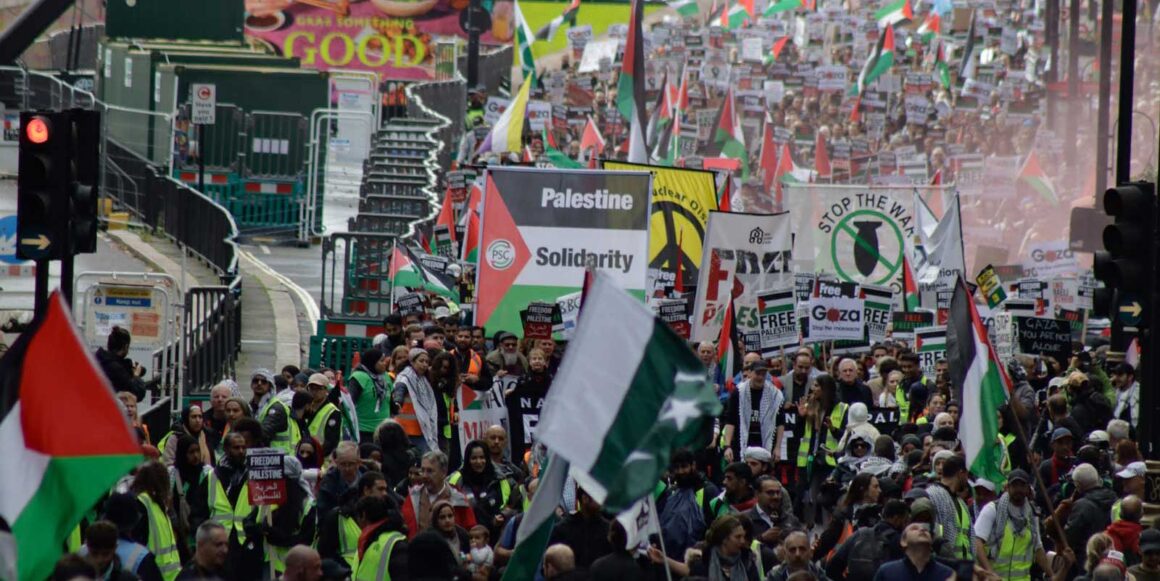

THE PALESTINE solidarity movement, both here and internationally, has come a long way in the past five months. Hundreds of thousands have demonstrated on a fortnightly basis on the streets of London. Around the country thousands of activists have organised assemblies and targeted MPs, councils and arms manufacturers.
The anti-democratic scenes in parliament on 21 February were a direct result of this unrelenting pressure. Labour’s amendment called for a ‘humanitarian’ ceasefire and refused to criticise Israel. In effect its position is the same as the Tories’. A ceasefire depends on the removal of the Hamas government and the destruction of the resistance movement’s capacity for self-defence.
This episode demonstrates the limitations of the slogan ‘ceasefire now’. Though an immediate end to the bombing is the most urgent task, it will still leave Gaza under an Israeli siege. That’s why the Tories and even the United States can now use the word ‘ceasefire’ without at all calling on Israel to withdraw its troops; it has become a potential means of securing a strategic victory for Israel while appearing to be even-handed.
So after this round of fighting stops, the movement must confront the question: what is the solution to the Palestinian question?
As we said in the last issue of this paper, ‘two states’ is an illusion, not a solution. Only a single, secular state, where Jewish and Arab people can live together without any discrimination or privilege for either community, can bring lasting peace. The levelling up necessary and the right of return underscore that this can only be done by smashing the Zionist state, which is in effect the only state from the river to the sea, and socialising the land and property, via a social revolution.
But the ‘official’ leadership of the movement, from PSC, to the trade union leaders, and the Communist Party, are all committed to the illusion of two states. In practice this makes them an obstacle to the campaign of workers’ direct action and sanctions that could break the UK’s support for the Zionist occupation and ethnic cleansing. More generally, the best way for workers in Britain to aid the struggle for Palestinian liberation is to build the revolutionary movement against British imperialism, which is one of the key architects of the imperialist order that oppresses the entire Middle East.
With the world’s great powers talking openly of settling their differences through war, it is vital to put the antiwar movement on a consistent anti-imperialist foundation. This means winning the argument that the only way to stop the drumbeats of a new imperialist world war is through the class struggle for socialist revolution.